Agora — Event & Conference WordPress Theme

- Description
- Reviews (3)
- FAQ

Agora — Event & Conference WordPress Theme
Big events live on tight timelines: agendas shift, speakers confirm late, rooms change, and tickets spike 72 hours before doors open. You don’t have time for license handshakes, per-domain seat math, or activation prompts. This release of Agora — Event & Conference WordPress Theme is packaged for teams that move fast: it’s ready to use after install, includes all Pro features, stays in step with the official release, and can be deployed on unlimited sites. In practice, that means your marquee conference, city roadshows, workshop series, partner summits, and staging environments all run smoothly—without waiting on vendor dashboards. You keep the full premium experience while removing the friction that slows real event work.
Why this ownership model fits real-world events
Events rarely stay on one site. You’ll want a main hub, a private sponsor portal, a speaker onboarding microsite, and a staging clone for last-minute QA. With Agora — Event & Conference WordPress Theme in this configuration you get:
-
Unlimited sites for your flagship conference, satellite meetups, virtual editions, and staging.
-
All Pro features included so you’re not juggling “lite” limitations when the timeline compresses.
-
Ready to use after install—start building pages immediately.
-
Updates in sync with the official release for compatibility and refinements.
-
Predictable ownership that lets operations plan with confidence and scale without red tape.
When your schedule is measured in show dates, not quarters, this is the difference between “nearly ready” and “go live.”
Who Agora serves best
-
Flagship conferences with multi-track agendas, sponsor halls, and keynotes.
-
Industry summits & trade shows that need halls, zones, and exhibitor directories.
-
University and community events with call-for-papers, committees, and volunteer shifts.
-
Corporate roadshows & product tours that spin up city-specific pages fast.
-
Hybrid/virtual events with session streams, time-zone switching, and on-demand libraries.
-
Workshop series & bootcamps where schedules, trainers, and prerequisites matter more than spectacle.
If your event’s job is to help people discover content, plan a schedule, and show up on time—Agora — Event & Conference WordPress Theme is tuned for it.
Design language: lively yet calm (because logistics are stressful)
Events are energetic; interfaces shouldn’t be chaotic. Agora balances excitement and clarity:
-
Hero systems with crisp headlines, date/location badges, and a single primary CTA (Register / Buy Ticket / Add to Calendar).
-
Track color tokens that carry through agenda chips, stage signage, and room pages for instant recognition.
-
Speaker cards that surface headshot, role, company, talk title, and tags for quick credibility.
-
Session cards with time, room, capacity/stream info, and conflict warnings during personal scheduling.
-
Tactile micro-interactions—hover reveals, sticky agenda headers, “back to current time”—that feel premium but stay fast.
-
Accessible contrast and typography that remains readable under hallway lighting.
The result feels like a well-run event: energetic but never confusing.
Information architecture that fits how attendees think
-
Home / Event Overview — Promise, dates, venue, top speakers, and a registration CTA.
-
Agenda (by Day & Track) — Filter by track, skill level, format; toggle time zones for virtual audiences.
-
Speakers — Grid and individual profiles with bios, sessions, links to slides or resources after the show.
-
Tickets & Pricing — Pass tiers, what’s included, limited-time promos, and group discounts.
-
Sponsors & Expo — Tiers (Platinum/Gold/Silver), floor plan/zone, and discoverable company pages.
-
Venue & Travel — Maps, transit, accessibility notes, badge pickup instructions, and local tips.
-
News & Updates — Announcements, policy changes, added sessions, weather contingency notes.
-
FAQ & Policies — Code of conduct, refund rules, photo/recording, privacy, and safety guidance.
-
Contact — A short form and clear response expectations.
Because this build is ready to use after install, you can scaffold the entire structure on day one and refine as details evolve.
Agenda & schedule: the beating heart of Agora
A great agenda is half content, half ergonomics. Agora ships opinionated agenda sections so people can build their day without friction:
-
Day switcher with a “You are here” time marker and a quick jump to current session.
-
Filters for track, level (Beginner / Intermediate / Advanced), format (Keynote / Panel / Workshop), and tags (AI, Security, Design, Leadership…).
-
Conflict-aware “Add to My Schedule” so attendees see overlaps before committing.
-
Room context on each session (capacity hints, stage name, floor).
-
Speaker micro-cards inline on sessions for quick credibility scan.
-
Time-zone toggle for remote audiences; all schedule math updates live.
The agenda layout is built for a quick glance in a hallway, not just desktop planning the night before.
Speaker profiles that sell the program
Attendees decide based on people as much as topics. Agora’s speaker pages help them skim and commit:
-
Headshot, name, role, company—up front and legible on mobile.
-
Session list with times, rooms, and clear tags.
-
Short bio written like a hallway intro, not a resume dump.
-
Links to slides or resources after the session (you control what appears).
-
Social handles (optional) with tasteful placement—this is about the talk, not follower counts.
-
Callout blocks for “Office Hours” or “Meet the Speaker” slots if you run them.
Profiles feel credible and consistent, which helps undecided attendees commit to a track.
Ticketing & registration pages that avoid drop-off
Your conversion path is a pass picker and a calm checkout—not a scavenger hunt:
-
Pass tiers (General / Workshop + Conference / VIP / Student) with what’s included, compare table, and savings math for early-bird windows.
-
Group & team bundles with “Bring your team” messaging and invoice-friendly details.
-
Add-ons (workshops, merch, reception tickets) presented as helpful, not pushy.
-
Refund/transfer policy in one human paragraph near the button, plus a link to full terms.
-
Accessibility & dietary collection early enough to plan but late enough to avoid friction.
If you prefer a third-party payment stack, the theme provides the surfaces; you decide the engine. (No external links are included here.)
Sponsors & expo: clear value for partners
Partners fund the experience; give them a home that converts:
-
Tiered sponsor grids with consistent logo sizing and short positioning copy.
-
Sponsor detail pages for lead capture, product highlights, and booth activities.
-
Expo map & zones with simple labeling and quick search (“Where’s Booth G12?”).
-
Session highlights where sponsors appear on stage; make it easy to plan a visit after seeing a talk.
-
Lead magnets (checklists, one-pagers) displayed tastefully.
The tone is professional and useful; nobody wants a banner farm.
Hybrid & virtual patterns built in
When the event is partly or fully online:
-
Stream placeholders embedded into session pages with countdowns and “Live now” badges.
-
Replay library organized by track and level with session notes and slide links.
-
Time-zone switch pinned near the agenda header.
-
“What to watch next” rails after a replay finishes to keep viewers engaged.
-
Chat/Q&A integration surfaces (you connect the provider).
Hybrid isn’t an afterthought; attendees feel equally guided whether on-site or remote.
Wayfinding & logistics that lower anxiety
-
Venue map with labeled halls and rooms, step-free routes, and restroom/quiet space pins.
-
Badge pickup hours and location with a simple “busy times” note.
-
Security & bag policy summarized plainly.
-
Weather & local transit hints, rideshare pickup zones, bike parking notes.
-
Accessibility: seating notes, captioning on keynotes, assisted listening availability.
Attendees who feel oriented stick to the plan—and rate your event higher.
Content publishing & editor experience (for teams that ship hourly)
Non-technical coordinators should be able to update copy minutes before a keynote:
-
Reusable blocks for sessions, speakers, sponsors, FAQ, and updates.
-
Global tokens for track colors, spacing, and typography—set once, apply everywhere.
-
Template cloning to duplicate tracks, workshop pages, or city editions fast.
-
Guardrails that keep layouts intact even when text length varies.
-
News ticker / updates module for late-breaking changes (room switches, added capacity).
-
“After the event” mode that pivots the site to replays, slides, and next year’s interest list.
If your team can write, they can publish—without breaking design.
Performance & accessibility: quiet wins that compound
-
Mobile-first layout with generous tap targets; readable line lengths on small screens.
-
GPU-friendly motion (transform/opacity only) for smooth interaction on average phones.
-
Disciplined images (modern formats, responsive sizes) and aspect-ratio locks to prevent layout shift.
-
Semantic HTML and visible focus states so keyboard and screen reader users navigate confidently.
-
Predictable empty/error states so pages never feel broken, even when a session is full or moved.
Events succeed when information is instant and trustworthy; speed and clarity are non-negotiable.
SEO scaffolding for event discovery
-
Clean slugs (e.g.,
/agenda/day-1,/speakers/jordan-lee,/tracks/data-and-ai). -
Structured data for sessions and FAQs where appropriate.
-
Internal linking between tracks, sessions, speakers, and tickets so people never hit a dead end.
-
Post-event content (recaps, highlight reels, “top sessions”) to keep traffic alive year-round.
-
Media discipline so you don’t sink mobile rankings with 5-MB hero videos.
Publish steadily; value compounds across editions.
Launch blueprint (48-hour build)
Day 1 — Skeleton & Core Content
-
Install Agora — Event & Conference WordPress Theme (it’s ready after install).
-
Set brand tokens (typography, colors, track palette).
-
Build Home with hero, date/location, top speakers, and registration CTA.
-
Create Agenda (Day 1/Day 2 scaffolding) and Speakers grid.
-
Draft Tickets and FAQ with honest policies.
Day 2 — Depth & Polish
-
Fill 20–40 sessions with tags, rooms, and speaker links.
-
Add Sponsors grid and a sample sponsor detail page.
-
Publish Venue & Travel with accessibility notes.
-
Mobile QA: agenda filters, add-to-schedule, ticket path, and sticky nav.
-
Compress media; verify CLS/LCP on the heaviest pages.
Go live with confidence; expand as confirmations roll in.
Migration notes (if you’re switching themes mid-cycle)
-
Preserve top URLs (agenda, tickets, speakers). Map redirects only where necessary.
-
Recreate global styles first so the brand feels continuous.
-
Standardize headshots (ratio, size) and session titles to avoid grid jitter.
-
Move the ticket path intact and test it end-to-end on mobile.
-
Resubmit sitemap; spot-check indexation and structured data for sessions.
Protect rankings and attendee muscle memory while you upgrade UX.
Troubleshooting quick list
-
High exits on Tickets → Shrink the comparison table; move refund/transfer summary near the button; add a “teams save X%” callout.
-
Agenda feels dense on mobile → Collapse filters by default; keep track colors; add “jump to now.”
-
Speaker pages with low dwell time → Bring session list above the fold; add one personal detail to bios; surface related sessions.
-
Attendees missing sessions → Add “Add to My Schedule” everywhere; send a “starts in 10 minutes” pattern through your email/app stack.
-
Sponsor complaints about visibility → Rotate placements on key surfaces; add a “Visit booths in this track” strip on session pages.
-
Slow first paint → Right-size hero media; lazy-load below-the-fold grids; audit third-party scripts.
Small clarity moves often beat big redesigns.
Why choose Agora instead of a generic multipurpose theme
You can bend a general theme into an event site, but you’ll fight the same battles for months. Agora — Event & Conference WordPress Theme already gives you:
-
Agenda scaffolds that make planning effortless on a phone.
-
Speaker & sponsor patterns that project credibility and drive action.
-
Ticketing surfaces that reduce drop-off.
-
Hybrid-ready session pages with live/replay affordances.
-
Editor guardrails so coordinators can publish updates minutes before a keynote.
-
Ownership freedom—all Pro features, unlimited sites, ready after install, updates synced.
Less time fighting structure; more time delivering a great event.
Final word
Events succeed when the website helps people decide, plan, arrive, and revisit. Agora — Event & Conference WordPress Theme pairs a conversion-ready design with an ownership model that respects event reality. This build includes all Pro features, is ready to use after install, syncs with the official release, and supports unlimited sites—so you can launch fast, adapt quickly, and reuse winning patterns across editions and cities. Publish the agenda clearly, showcase speakers credibly, simplify the ticket path, and keep updates honest. Do that, and attendance—and satisfaction—tends to climb.
FAQ
Q1: What exactly is included with this version of Agora — Event & Conference WordPress Theme?
The complete premium theme with all Pro features intact. It’s ready after install, kept in step with the official release, and usable on unlimited sites—no activation keys required.
Q2: Is this a reduced “lite” edition?
No. You get the full component library: agenda/day builders, speaker and sponsor modules, ticketing surfaces, venue/travel blocks, news/updates, FAQ, and more.
Q3: Can I run city editions, private sponsor portals, and a staging site without extra costs?
Yes. The model allows unlimited sites, ideal for multi-city tours and microsites.
Q4: How do updates work?
Update in your dashboard like any premium theme. Because it syncs with the official release, you inherit upstream improvements and compatibility fixes.
Q5: Does Agora support hybrid and virtual events?
Yes. Session pages include areas for stream embeds, countdowns, “Live now” indicators, and replay libraries.
Q6: Will non-technical coordinators be able to update pages safely?
Absolutely. Reusable blocks, template cloning, and global style tokens let content teams ship changes without breaking design.
Q7: Is it optimized for mobile-first browsing?
Yes. The agenda, speaker grids, and ticketing flows are designed for small screens with fast, GPU-friendly motion and disciplined media.
Q8: How does it handle accessibility?
Semantic HTML, visible focus states, strong color contrast, and keyboard-navigable menus are built-in. You add alt text and captions where relevant.
Q9: We’re switching from another theme two months before the show—is that safe?
Yes—preserve top URLs, rebuild global styles first, standardize speaker assets, and QA the ticket path and agenda on mobile. Launch after a brief redirect audit.
Q10: Can we keep the site useful after the event?
Yes. Flip to replay mode with session videos, slides, top-talk lists, and a “Notify me for next year” capture.
Share Your Valuable Opinions
Q: Do I need a license key?
A: No. All products are Pre-Activated. You can use 100% of the Premium features immediately.
Q: Can I use the One-Click Demo Import?
A: Yes, absolutely! We ensure the demo import feature works perfectly.
Q: Can I use the products on multiple websites?
A: Absolutely. The GPL license allows use on unlimited domains.
Q: Are the files safe?
A: Yes. All files are scanned by McAfee and VirusTotal before uploading.
Share Now!

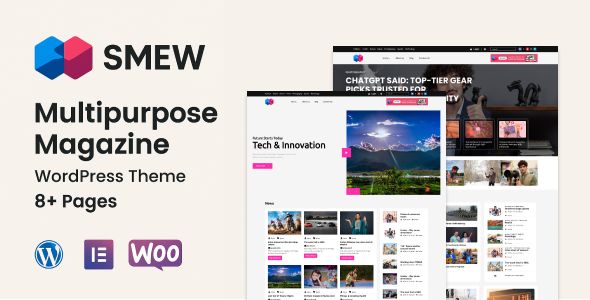
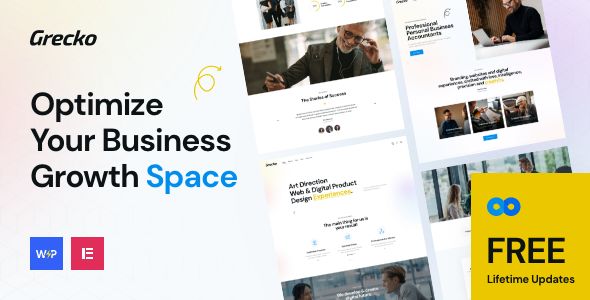
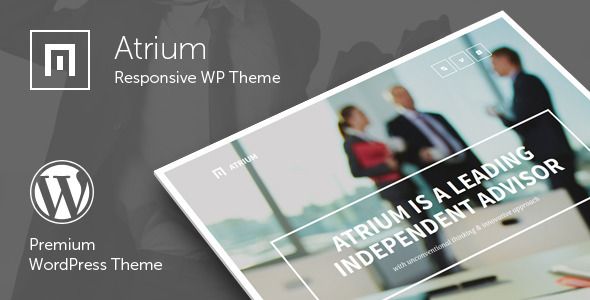
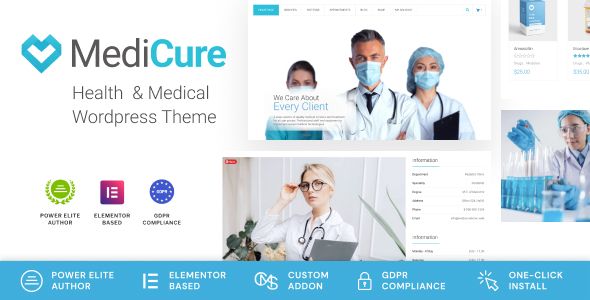
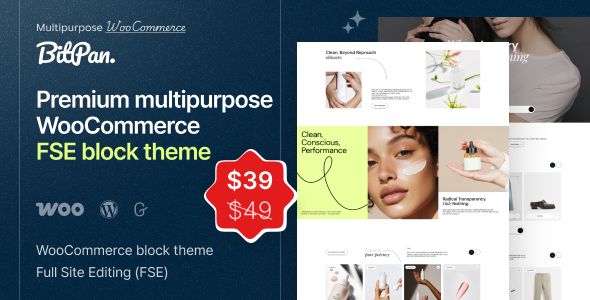



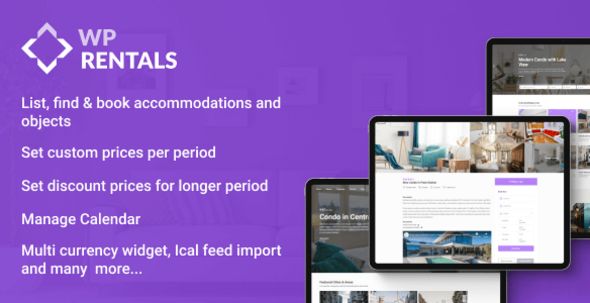






No regrets.
Well done.
Just buy it.